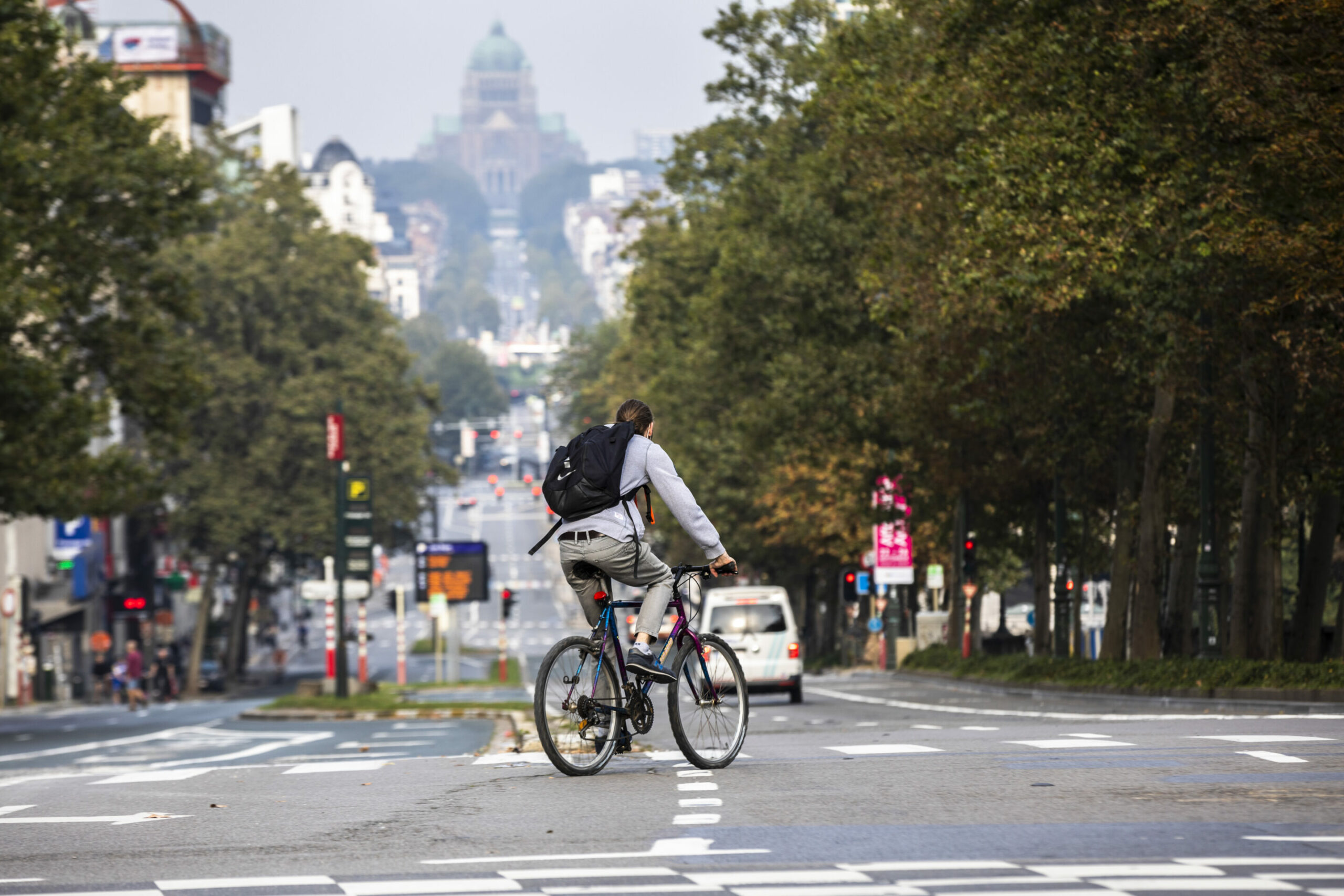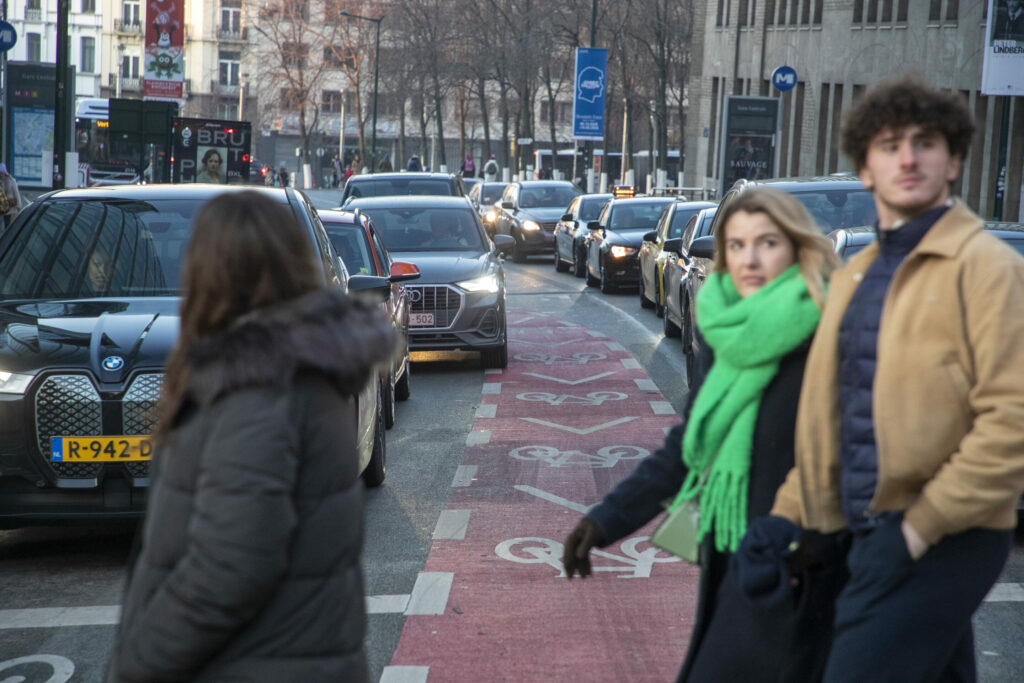Brussels is one of the most polluted cities in Europe. As voters are set to elect members of local and regional parliaments in the coming months, experts are calling on politicians to take tougher measures against air pollution.
According to IS Global research, the Belgian capital is ranked eighth out of over 800 European cities for high nitrogen dioxide levels. Residents are exposed to concentrations of fine particles (PM2.5) and nitrogen dioxide that are two and five times higher than the World Health Organisation (WHO) recommendations.
Air pollution is associated with an increased risk of cardiovascular disease, strokes and dementia as well as certain types of diabetes and cancers.
In light of these worrying figures, a total of 140 health and environment experts including doctors, scientists, and health and environmental activists wrote an open letter to Brussels politicians, calling on them to take a tougher stance against air pollution ahead of the regional elections on 9 June and the local elections in October.
"Every year, more than 900 Brussels residents die prematurely as a result of poor air quality," the experts wrote in the letter. This equates to more than two deaths per day, and more than 10% of all deaths in the Belgian capital.
The report comes just after the French-speaking socialists PS joined centrists Défi in calling for the relaxing of one particular measure put in place to combat air pollution, namely the Low Emission Zone (LEZ), asking the region to delay the ban on Euro-5 cars in Brussels.
Health and financial cost
The experts noted that society's most vulnerable are also most at risk of health complications as a result of air pollution. "Children, for example, are particularly vulnerable to air pollution because their metabolism is still developing, because they breathe faster and because, due to their small size, they are closer to sources of pollution such as car exhausts."
"Combating air pollution therefore helps to protect the health of the youngest children," they continued.
Air pollution also has a greater impact on low-income households, as they are more likely to live in neighbourhoods that are more polluted, resulting in life expectancy decreasing significantly. "For these people, access to green spaces, sporting activities and healthy food is often difficult and does little or nothing to offset the harmful effects of pollutants on their health."

Car-free Brussels. Credit: Belga/ Hatim Kaghat
On top of the risk fine particles and nitrogen dioxide pose to people's health, air pollution is also a financial drain. "In 2018, it cost the Brussels region €1.6 billion, or an average of €1,400 per inhabitant of Brussels in that year alone."
While the European Union is reviewing air quality standards to make them stricter and bring them closer to WHO recommendations, the experts argued these will still be insufficient to adequately protect the health of city-dwellers. They therefore stepped up the pressure on candidates to address the pollution urgently.
Tougher LEZ and greener streets
The experts called for strict enforcement of the LEZ, "namely an abolition of diesel engines by 2030 and petrol engines by 2035 at the latest on the entire territory". Here, experts said Brussels should look at other European capitals as an example, where stricter LEZ rules were introduced quicker than planned. Paris and Amsterdam plan to ban all cars running on fossil fuels by 2030, while London has extended its "ultra LEZ" despite intense opposition.
The signatories also call for more low-traffic neighbourhoods as part of the Good Move policy, as was done in the centre of Brussels. "The reduction in road traffic (by 15 to 20% in one year in the Pentagon neighbourhood) means a reduction in air pollution, but also noise and the risk of accidents."
Related News
- 'Let's be realistic': Socialists push to delay Brussels' stricter Low Emission Zone
- Brussels' air pollution costs residents up to five year's life expectancy
- 'Full of ideas': Brussels increasingly listening to its expats
They noted that Brussels should also increase the network of cycle paths separated from traffic on the busiest routes, giving priority as soon as possible to the creation of infrastructure that is quick to implement and inexpensive. This will not only reduce the pollution cyclists are subjected to but also help safety conditions, in turn encouraging more people to cycle, further reducing emissions.
Finally, they also called for more pedestrian zones near schools, an incentive to make more use of pick-up points instead of home delivery – deliveries, most often made by diesel vans, are a growing source of air pollution – and more car-sharing.

